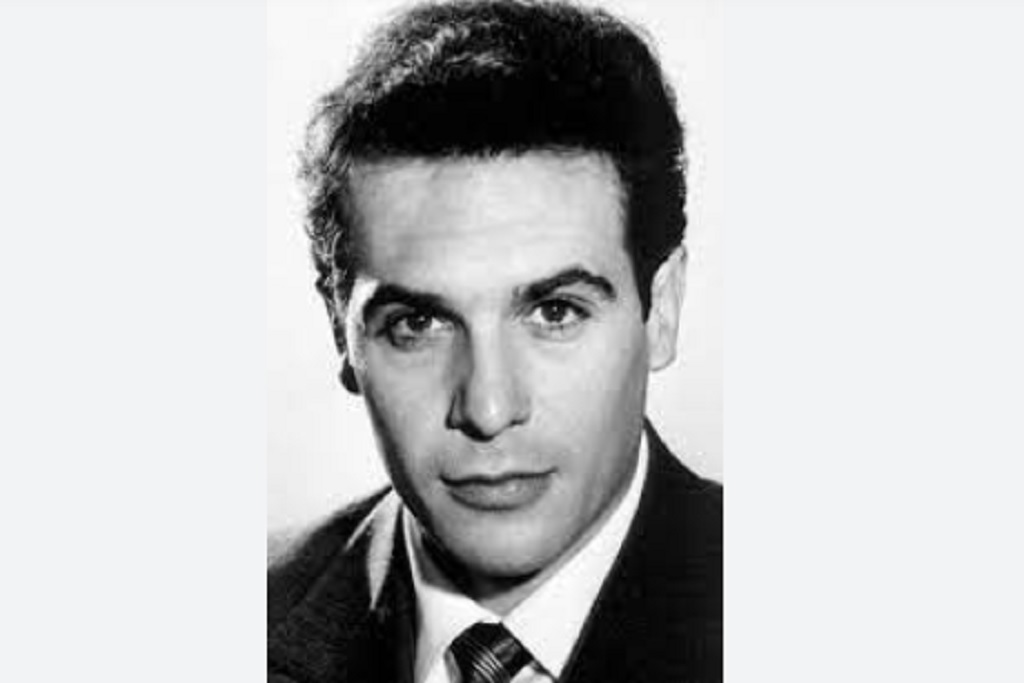Francisco Rabal Valera, actor was born in Aguilas, Spain 8 March 1926 and married 1951 Asuncion Balaguer (one son and one daughter) and died Bordeaux, France 29 August 2001.
Francisco Rabal was for decades not just the most popular actor in Spain He was also an icon of Spanish film around the globe as he collaborated alongside Luis Bunuel in atmospheric and groundbreaking films that included Viridiana in addition to Belle de Jour. «It wasn’t that Rabal was the best, although that could be so,» an actor’s friend said, «but that he was the most beloved. He was like the father of us everyone.»
«Paco» Rabal’s origins were as humble as the ruffians from his picaresque that who he would play. A miner’s son, born in Aguilas in Spain’s southern region of Murcia He sold sunflower seeds and sweets on the streets and later, he worked in the chocolate factory. He studied to become electrician, and at night reading books, and began writing poetry and plays. In 1936, he was employed at the Chamartin Cinematic Studios in Madrid as an electrician. «My legs shook the first time I went in,» he said. He was there for five years, in which he read answers to the questions for celebrities of that day while they practiced their lines.
In 1942, while filming of a scene for La Rueda de la Vida («The Wheel of Life») He volunteered to be an actor. He was spotted and was able to begin a career that was a total of 200 films. He played what Spanish called «un galan» – a screen idol and a seducer. When he was young, his beauty was stunning – invisible to anyone who saw only his aged, ravaged facial features. However, he was able to expand his range and be a captivating and irresistible character, possibly getting to his peak with the portrayal of old Goya in the film Goya (Goya from Bordeaux 1999).
The film’s stunning visuals, written by Carlos Saura and shot by Antonio Storaro, celebrates Rabal’s eyes that were squashed and his weight loss that bore an uncanny resemblance to Goya’s portraits of himself. Irascible, unrelenting but delicate and sensitive Goya’s persona according to the actor was the most like his own that of any character that he’d performed. Rabal had the gift uncommon in Spanish theater, of presenting as a person and not acting. Rabal was the very first actress to appear in Spanish cinema to portray the role of a worker convincingly. His instruments were his iconic broken voice and his eyes that were ablaze with passion.
In 1947, he was employed from 1947 in Madrid theatres. After a stint on the stage of the Arthur Miller film Death of a Salesman, the actor alternated between theatre and film until 1953 when the film director Vicente Escriva starred him in numerous films about politics and religion. His breakthrough came when he portrayed an ordained Priest on screen in Nazarin (1958) which was directed by Luis Bunuel. His performance so impressed Bunuel that he commissioned to cast him as a character in Viridiana (1961) and then Belle de Jour (1966) together with Catherine Deneuve. They formed the friendship of their lives and Rabal was known as «Uncle Luis».
The early years of Rabal’s life taught the notion that life is one of struggle between the wealthy and poor and he was an ardent Communist. However, it was claimed that his charisma attracted even the most fervent Nazis. «He was not what you would call cultured,» an actor friend said «But he radiated a sincerity that was more convicing than any Marxist theory.»
Merle Oberon, according to reports, said she would give him fame in the event that he followed her to Hollywood. However, Rabal did not want to pursue it. «My English is poor,» he admitted, «and I don’t like the American life style, full of individualistic ambition.»
His career stalled during the Seventies however, he always was working. Two car accidents, in 1983 and 1980 and 1980, left him with horrific marks on his face. becoming overweight, he started to lose his hair, and for a short time was wearing hair. However, he was a part of the popular TV show, Juncal, about an engaged retired bullfighter. He was awarded the Best Actor Award at Cannes for his role in the film Los Santos Inocentes (The Holy Innocents 1984). In 1990, he was a part-time actor in the hit movie of Pedro Almodovar,!Atame! (Tie Me Up! Tie Me Down!). Rabal was known for his incredible memory and was able to recall the names of a whole film crew. At the farewell dinner hosted by Goya, Rabal recited a poem dedicating each of the 60 team members. «He knew us all and was able to write something for each one,» one person recalled.
Rabal was scheduled to receive this year’s Donostia award for his lifetime of work in this year’s San Sebastian film festival. He was on his way back home after Montreal for Montreal Film Festival, where the festival had awarded him an award for lifetime achievement, after which he began to fall sick during the flight. The pilot made it to Bordeaux and Rabal passed away at the airport.
If Goya may have been made to be his character, so was his character for Lazaro de Tormes (2000) which is a rousing adaptation of the first ever picaresque novel. Rabal portrays the sadistic blind man, with his grotesque mouth, distorted by malice an unsteady hand hovering over his teen guide waiting to take the boy’s face down to earth.
He was a frequent alcohol and smoking addict and often remarked that these indulgences would eat his life. One day, during the shooting of Goya in which he played the artist dying, Rabal remarked: «In my family we have a peasant fatalism towards death. Death seems to us the logical consequence of life. As an aunt once told me: ‘We all have to be born and we all have to die’ «. However, beneath the flimsiness lies comedy and humour and a cartoon published in the newspaper El Mundo showed the portly old actor posing as St. Peter: «At weekends, could I descend to hell for a while?»






